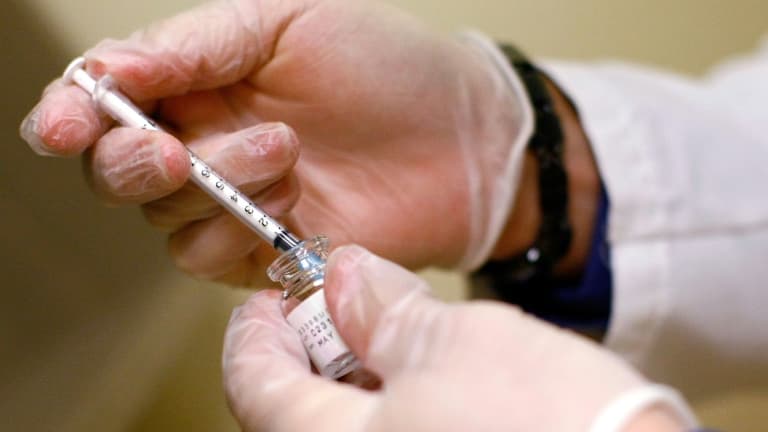Alzheimer’s cases have been reported in patients who received hormones from sick donors

According to a British study, patients who received growth hormones from deceased donors and suffered from Alzheimer’s disease developed similar symptoms.
Can Alzheimer’s be contagious? British daily The Guardian reports that a study published this Monday, January 29 in the journal Nature Medicine suggests that the disease can be clinically transmitted between individuals.
The research team of John Calling, director of the Institute of Prion Diseases at University College London, revealed that five patients who received growth hormone injections from donors who carried Alzheimer’s before 1985 were recently diagnosed with the disease.
According to British researchers, Alzheimer’s disease may therefore take an infectious form, in addition to the genetic predisposition we already know.
Eight patients with Alzheimer’s disease
Between 1959 and 1985, around 1,848 patients in the UK received growth hormones. Usually used for medical purposes to compensate for stunted growth in children, the hormone that was given to the patients came from the pituitary gland (a small gland located at the base of the brain) of dead people.
However, according to the study, most of these deceased donors also had Creutzfeldt-Jakob disease (CJD), “a prion disease” that causes rapid and fatal degeneration of the nervous system. Another batch of hormones showed the presence of beta-amyloid protein (Aß), a signature of Alzheimer’s disease.
More than 4% of 1,848 British patients who received contaminated samples died. Among the cases described in Nature Medicine, Eight patients were affected by the onset of Alzheimer’s disease: three died, including patients aged 47 and 57 years. The other five patients are now aged between 54 and 57, but show signs of cognitive decline and memory loss.
The hypothesis put forward by scientists is that like “prion diseases”, Alzheimer’s disease can also be transmitted in cases of treatment with hormones or contaminated proteins.
“nothing to panic”
An essential discovery for British researchers, which also represents a public health problem, “for example, by ensuring the effective deactivation of surgical instruments”, they mentioned in the study.
“The new type of Alzheimer’s disease reported here is of great scientific interest, because it shows a new way of spreading the disease, nothing to be afraid of, because the mode of transmission of this disease stopped more than 40 years ago. ,” of biochemistry at the University of Manchester. Professor Andrew Doig told The Guardian.
Indeed, according to a British daily, the practice was banned in 1985 after the deaths of the patients mentioned in the study. Scientists also want reassurance, as there is no evidence that Alzheimer’s disease can be transmitted in other contexts.
“We’re not suggesting for a moment that you can get Alzheimer’s disease. It’s not contagious in the sense of a viral or bacterial infection,” John Colling said.
About one million people in France suffer from Alzheimer’s disease, according to the Alzheimer’s Research Foundation. Every year, 225,000 new cases are reported.





